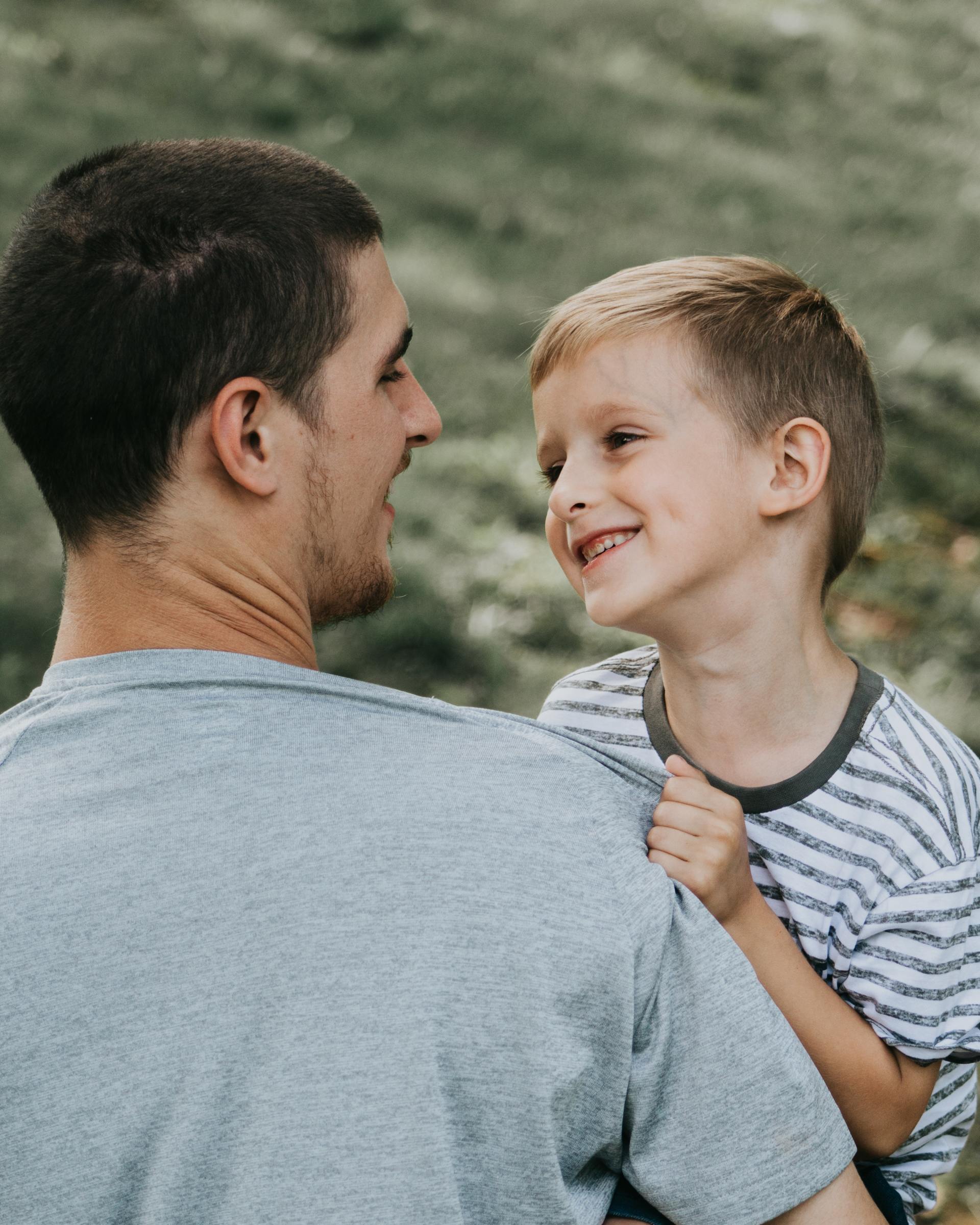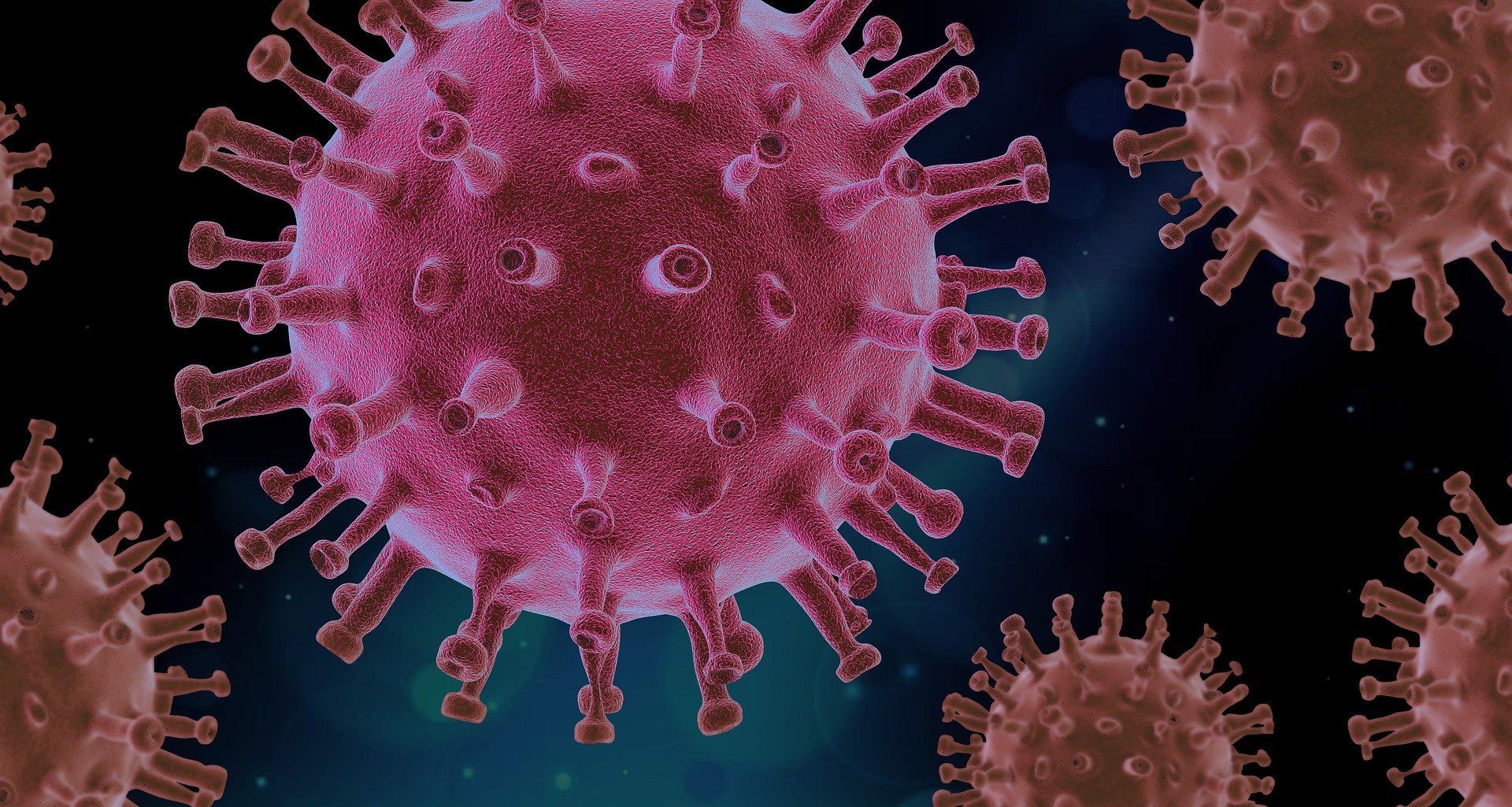New Connections
New Connections helps individuals and families dealing with Autism Spectrum Disorder and related disorders by using Applied Behavior Analysis (ABA). ABA is the best evidence-based therapy that we have today for treating young children with autism.
Our Mission Statement
At New Connections, our mission is to help people with autism and related disorders and their families to lead more fulfilling lives. By developing a therapeutic program tailored to each individual, we teach our clients to function more effectively at home, at school, and throughout the community. Our ultimate goal is to fully maximize each client’s potential.
Helping people with autism and related disorders.
What We Do
We treat behavioral issues using Applied Behavior Analysis (ABA). ABA is the best-practice standard for treatment of people with autism. We emphasize parent and teacher training, generalization across environments, and family involvement as we use evidence-based protocols to guide our clients along their journey. ABA is also shown to be effective with ADHD and other related disorders.
Autism
Autism is a developmental disorder characterized by troubles with social interaction, communication, and restricted and repetitive behavior. Parents often notice signs in the first two or three years of their child's life.
ADHD
Attention-deficit/hyperactivity disorder (ADHD) is a brain disorder marked by an ongoing pattern of inattention and/or hyperactivity-impulsivity that interferes with functioning or development.
ABA
Applied Behavioral Analysis is the science of human behavior. It is the process of using systematic interventions to improve socially significant behaviors in a way that is meaningful for individuals and their families.
Autism
- Often characterized by:
- Difficulty with social interaction
- Repetitive behaviors
- Problems with speech and communication
- Unique strengths and differences
- Diagnoses can be made as early as 18 months, but can also happen much later
- Affects virtually every aspect of a person’s life
- Enormous impact on families
- Affects 1 in 59 children (including 1 in 37 boys), per CDC’s 2018 estimate
Applied Behavior Analysis (ABA)
- Demonstrated to be the most effective treatment protocol for people with autism
- Evidence-based
- Adaptable across all environments (home, school, community, etc.)
- Highly individualized--teaches desired behaviors through positive reinforcement
- Effective for ADHD and other related disorders
No matter where you are on your journey, New Connections can help.
Call Today for Information: (615) 915-1292
Send us a Message
134 Belle Forest Circle Nashville, TN 37221
Recent Blog Posts
Read our posts related to autism, ADHD and related disorders using evidence-based Applied Behavior Analysis (ABA).

To be the parent of a child with autism is to live a life of altered expectations. We imagine that we will share the things we treasure with our kids, but they may have different ideas. And this can be especially true if that kid has autism.
Sometimes, though, it all works out. And when it does, we may find ourselves appreciating the moment in ways both different and profound.
And so it was that I found myself on a Saturday night in March in the Greensboro (NC) Coliseum with my 19-year-old son, Eric, awaiting the arrival of Bruce Springsteen and the E Street Band. It had been 42 years since my first Springsteen show--a transformational experience for me at age 16. Like so many fans, I had been overwhelmed by the energy, the passion, the commitment of Bruce and the band, and it started me on a journey that continues to this day. This Greensboro show would be my 23rd.
Eric loved music from the beginning. His earliest favorite was Alison Krauss (sidebar--in 5th grade it was arranged that she would come to school to meet him. She spent 45 minutes with us and could not have been more generous.). But he enjoyed other artists, too, and Bruce was certainly among them. The songs he liked were the songs he liked. There are not too many Springsteen fans that would name Human Touch as their favorite album, but it is surely Eric's! Ever the cataloguer of things, Eric worked his way through the entire Springsteen discography, and it became clear that this was one of his preferred artists. There were others--Maura O'Connell, Thomas Rhett, Kacey Musgraves, Talking Heads, Frank Sinatra--but when he had a choice to make, it was Springsteen as often as anyone else.
At age four, we rolled the dice and took Eric to his first honest-to-goodness concert (Alison Krauss at Nashville's Bridgestone Arena). He was entranced. We learned that, chosen with care, concerts could be marvelous experiences for him. Others followed, and, for the most part, they were highly successful, even if infrequent.
But a Springsteen show is another matter. They are longer, louder (at least than anything he'd seen), and not always nearby if you happen to live in Middle Tennessee. When, after a six-year layoff, in part because of COVID, tickets went on sale last summer for concerts this spring, I had a decision to make. Should I give it a go? Should Eric come with me to share the experience? Would this be the full-circle father-and-son moment that, if you'd have asked me, I'd have thought we'd never have had the opportunity to enjoy?
With it having been so long since Bruce and the band toured, demand for tickets was as high as it had been in decades. There would be no wait-and-see. So on the July day that passcodes were applied for--those that, if granted, would merely allow the opportunity to queue online for tickets--decisions had to be made. And my decision was, yes, let's go for it. Greensboro was offered (a seven-hour drive from Nashville), so that would be the try. On sale day, the angels were smiling as a pair of seats in the first row of the second deck came up for us. I clicked in time, and our course was set. The printed confirmation page was wrapped in a box with a 2023 Tour t-shirt, and on Christmas Day, Eric learned that, three months hence, he and dad would be making a trip to see Bruce.
What would this be like? Seeing a Bruce show is, truly, one of my absolute favorite things to do, and, selfishly, I would be putting this experience at risk if it didn't go well for Eric. What if, halfway through the three-hour gig, Eric said, "Dad, can we go?" Make no mistake--this would be a possibility. Several things were in my favor, though. For one, we'd be staying in a hotel ("Hotels have TVs, beds, and toilets!"). Any decent arena will have cheeseburgers ("with ketchup and mustard!"). And Eric really does like Bruce Springsteen's music. But still, you never know.
Even after twenty-two of them, the opening of a Springsteen show is like no other. Whether beginning with a darkened stage, or with the band walking on one by one with all the house lights up, there is this moment when you see Bruce and the band with your own eyes and you realize that this is really happening. Would Eric feel this way? How would I know? As he stood with his phone pointed towards the stage, smiling as he started to record his first video, I had the distinct impression that, in his way, Eric got it just like I did. With a throaty, "It's good to be in GREENSBORO!! One-two-three-four!" we were into the 1980s anthem "No Surrender", and off to the races.
So how was the show? It was a Bruce Springsteen show, full of grit and grandeur, of great sweeps and emotional gut-punches. But that's my experience. What about Eric's? We had one problematic moment--about seven songs in, his phone ran out of storage. At that point I realized that he'd been making a video of every song. Unprepared to deal with that in the moment, we had to have a discussion about it, but the crisis did not metastasize. For the rest of the night, Eric seemed to enjoy himself. At the very least, he paid attention. But how much? Was this all worth it to him?
As we drove away, I tried to figure out just wat he'd gotten out of our night.
"What was your favorite song?"
"I don't know."
"What songs did they play?"
"Born in the USA." (They didn't)
I tried a different tack--"What was the first song?"
"No Surrender." (Correct!)
"What was the last song?"
"I'll See You in My Dreams." (Correct again!)
"What songs did they play from Darkness on the Edge of Town? "
"Prove it all Night, Promised Land, Candy's Room, Badlands." (Absolutely, 100%, correct!)
Ok, I guess he really did get something out of this!
Eric is an inveterate box-checker. Often when he has done something once, he doesn't want to do it again--even if he really liked it. "I've already did_____", he might say. On the way home, I asked him the question, "If Bruce Springsteen came to Nashville, would you want to go see him?" Without hesitation, "Yes!"
Sometimes, though, it all works out. And when it does, we may find ourselves appreciating the moment in ways both different and profound.
And so it was that I found myself on a Saturday night in March in the Greensboro (NC) Coliseum with my 19-year-old son, Eric, awaiting the arrival of Bruce Springsteen and the E Street Band. It had been 42 years since my first Springsteen show--a transformational experience for me at age 16. Like so many fans, I had been overwhelmed by the energy, the passion, the commitment of Bruce and the band, and it started me on a journey that continues to this day. This Greensboro show would be my 23rd.
Eric loved music from the beginning. His earliest favorite was Alison Krauss (sidebar--in 5th grade it was arranged that she would come to school to meet him. She spent 45 minutes with us and could not have been more generous.). But he enjoyed other artists, too, and Bruce was certainly among them. The songs he liked were the songs he liked. There are not too many Springsteen fans that would name Human Touch as their favorite album, but it is surely Eric's! Ever the cataloguer of things, Eric worked his way through the entire Springsteen discography, and it became clear that this was one of his preferred artists. There were others--Maura O'Connell, Thomas Rhett, Kacey Musgraves, Talking Heads, Frank Sinatra--but when he had a choice to make, it was Springsteen as often as anyone else.
At age four, we rolled the dice and took Eric to his first honest-to-goodness concert (Alison Krauss at Nashville's Bridgestone Arena). He was entranced. We learned that, chosen with care, concerts could be marvelous experiences for him. Others followed, and, for the most part, they were highly successful, even if infrequent.
But a Springsteen show is another matter. They are longer, louder (at least than anything he'd seen), and not always nearby if you happen to live in Middle Tennessee. When, after a six-year layoff, in part because of COVID, tickets went on sale last summer for concerts this spring, I had a decision to make. Should I give it a go? Should Eric come with me to share the experience? Would this be the full-circle father-and-son moment that, if you'd have asked me, I'd have thought we'd never have had the opportunity to enjoy?
With it having been so long since Bruce and the band toured, demand for tickets was as high as it had been in decades. There would be no wait-and-see. So on the July day that passcodes were applied for--those that, if granted, would merely allow the opportunity to queue online for tickets--decisions had to be made. And my decision was, yes, let's go for it. Greensboro was offered (a seven-hour drive from Nashville), so that would be the try. On sale day, the angels were smiling as a pair of seats in the first row of the second deck came up for us. I clicked in time, and our course was set. The printed confirmation page was wrapped in a box with a 2023 Tour t-shirt, and on Christmas Day, Eric learned that, three months hence, he and dad would be making a trip to see Bruce.
What would this be like? Seeing a Bruce show is, truly, one of my absolute favorite things to do, and, selfishly, I would be putting this experience at risk if it didn't go well for Eric. What if, halfway through the three-hour gig, Eric said, "Dad, can we go?" Make no mistake--this would be a possibility. Several things were in my favor, though. For one, we'd be staying in a hotel ("Hotels have TVs, beds, and toilets!"). Any decent arena will have cheeseburgers ("with ketchup and mustard!"). And Eric really does like Bruce Springsteen's music. But still, you never know.
Even after twenty-two of them, the opening of a Springsteen show is like no other. Whether beginning with a darkened stage, or with the band walking on one by one with all the house lights up, there is this moment when you see Bruce and the band with your own eyes and you realize that this is really happening. Would Eric feel this way? How would I know? As he stood with his phone pointed towards the stage, smiling as he started to record his first video, I had the distinct impression that, in his way, Eric got it just like I did. With a throaty, "It's good to be in GREENSBORO!! One-two-three-four!" we were into the 1980s anthem "No Surrender", and off to the races.
So how was the show? It was a Bruce Springsteen show, full of grit and grandeur, of great sweeps and emotional gut-punches. But that's my experience. What about Eric's? We had one problematic moment--about seven songs in, his phone ran out of storage. At that point I realized that he'd been making a video of every song. Unprepared to deal with that in the moment, we had to have a discussion about it, but the crisis did not metastasize. For the rest of the night, Eric seemed to enjoy himself. At the very least, he paid attention. But how much? Was this all worth it to him?
As we drove away, I tried to figure out just wat he'd gotten out of our night.
"What was your favorite song?"
"I don't know."
"What songs did they play?"
"Born in the USA." (They didn't)
I tried a different tack--"What was the first song?"
"No Surrender." (Correct!)
"What was the last song?"
"I'll See You in My Dreams." (Correct again!)
"What songs did they play from Darkness on the Edge of Town? "
"Prove it all Night, Promised Land, Candy's Room, Badlands." (Absolutely, 100%, correct!)
Ok, I guess he really did get something out of this!
Eric is an inveterate box-checker. Often when he has done something once, he doesn't want to do it again--even if he really liked it. "I've already did_____", he might say. On the way home, I asked him the question, "If Bruce Springsteen came to Nashville, would you want to go see him?" Without hesitation, "Yes!"

How do we choose the places we go? The stores where we shop, the places we go on vacation, the communities where we wind up making a home? Usually it is some combination of what we've experienced stirred together with what we've heard from others, garnished with a healthy serving of happenstance. Now, if you are a young man with autism, how do you choose a new restaurant to try?
If you are my son, Eric, it's quite simple, really. First, you have an attraction to trains that has flourished since your earliest days absorbing Thomas the Tank Engine. Then, you notice the train tracks running near your pediatrician's office that head toward the place Dad works. You are greatly focused on these tracks, and every so often you are rewarded by seeing an actual train. With your love of Google Maps, you carefully catalogue in your mind the path of those same train tracks and all the nearby roads. You notice Sawyer Brown Road in Bellevue, and with further investigation, you find Plantation Pub, 8321 Sawyer Brown Road, Nashville.
Upon the discovery of Plantation Pub, Eric immediately asked when we could go (and by "when", he meant precisely what date). Turned out that Mom was going to the opera on the evening of September 24, so this seemed propitious. The promise was made, and Eric was utterly committed to seeing it kept.
In retrospect, I might have investigated what other events were taking place during that particular late afternoon/early evening. Had I done so, I might have noticed that a college football game of considerable local interest was set to take place at that very time. And, though I was not oblivious to the fact that the game was going on, I was nonetheless surprised when we approached the restaurant and found an overflowing parking lot and a deck bursting with orange-clad revelers. Screaming football fans (or screaming anybody, for that matter) are not exactly my son's cup of tea. But neither is a last minute change of plans. So we gamely walked in. As we stepped into the breach, a large figure on multiple TV screens ran, or jumped, or tripped, and the patrons reacted with vigor. Eric's fingers went directly into his ears, and it became apparent that, if we were to stay, outside seating would be preferable.
Despite serving what doubtless would be one of their largest crowds of the year, our waiter was calm and patient. He paid attention to details. Our table was a little bit in the sun--no worries, he suggested moving it a few feet. He picked up on the fact that Eric was not neurotypical, and he thus gave him a little more time to respond. In a setting that would render most of us harried, at best, our waiter was unfailingly considerate and attentive to our needs.
As I considered what Plantation Pub might be like without a big football crowd (in other words, normally), I looked for clues to see if our waiter's general demeanor was part of the overall vibe. Two well-behaved dogs rested by their owners, occasionally drinking from bowls that it appeared the staff had set out for them. Despite the chaotic appearances, everyone seemed to be getting served in a timely and friendly manner. No one was placing unreasonable demands on the staff, mainly because it seemed that they were doing such a good job. In fairness, it didn't hurt that the home team was well on its' way to defeating the hated rival. Regardless, the atmosphere was friendly, relaxed, accommodating.
With all of that, we still did come there to eat. Where's Eric? Over at the corner of the deck where the train tracks were in clear view (we mustn't forget about the trains) in a wan hope that maybe, just maybe, things would time out just right. Not on this day, so Eric came over to order a cheeseburger with JUST ketchup and mustard. Our waiter patiently clarified that "just" meant "just". And it did. I got the catfish basket. And despite the crowds, despite the chaos, we were served promptly and correctly. The catfish was quite good, with the batter having that bit of saltiness that I prefer and the fish not being too fishy. The prices were very reasonable (something we don't seem to say too often these days). As I think back on the experience, I might ask the reader if they'd like to go to a place with good food, fair prices, and I kind an patient staff? I know I would.
If you are my son, Eric, it's quite simple, really. First, you have an attraction to trains that has flourished since your earliest days absorbing Thomas the Tank Engine. Then, you notice the train tracks running near your pediatrician's office that head toward the place Dad works. You are greatly focused on these tracks, and every so often you are rewarded by seeing an actual train. With your love of Google Maps, you carefully catalogue in your mind the path of those same train tracks and all the nearby roads. You notice Sawyer Brown Road in Bellevue, and with further investigation, you find Plantation Pub, 8321 Sawyer Brown Road, Nashville.
Upon the discovery of Plantation Pub, Eric immediately asked when we could go (and by "when", he meant precisely what date). Turned out that Mom was going to the opera on the evening of September 24, so this seemed propitious. The promise was made, and Eric was utterly committed to seeing it kept.
In retrospect, I might have investigated what other events were taking place during that particular late afternoon/early evening. Had I done so, I might have noticed that a college football game of considerable local interest was set to take place at that very time. And, though I was not oblivious to the fact that the game was going on, I was nonetheless surprised when we approached the restaurant and found an overflowing parking lot and a deck bursting with orange-clad revelers. Screaming football fans (or screaming anybody, for that matter) are not exactly my son's cup of tea. But neither is a last minute change of plans. So we gamely walked in. As we stepped into the breach, a large figure on multiple TV screens ran, or jumped, or tripped, and the patrons reacted with vigor. Eric's fingers went directly into his ears, and it became apparent that, if we were to stay, outside seating would be preferable.
Despite serving what doubtless would be one of their largest crowds of the year, our waiter was calm and patient. He paid attention to details. Our table was a little bit in the sun--no worries, he suggested moving it a few feet. He picked up on the fact that Eric was not neurotypical, and he thus gave him a little more time to respond. In a setting that would render most of us harried, at best, our waiter was unfailingly considerate and attentive to our needs.
As I considered what Plantation Pub might be like without a big football crowd (in other words, normally), I looked for clues to see if our waiter's general demeanor was part of the overall vibe. Two well-behaved dogs rested by their owners, occasionally drinking from bowls that it appeared the staff had set out for them. Despite the chaotic appearances, everyone seemed to be getting served in a timely and friendly manner. No one was placing unreasonable demands on the staff, mainly because it seemed that they were doing such a good job. In fairness, it didn't hurt that the home team was well on its' way to defeating the hated rival. Regardless, the atmosphere was friendly, relaxed, accommodating.
With all of that, we still did come there to eat. Where's Eric? Over at the corner of the deck where the train tracks were in clear view (we mustn't forget about the trains) in a wan hope that maybe, just maybe, things would time out just right. Not on this day, so Eric came over to order a cheeseburger with JUST ketchup and mustard. Our waiter patiently clarified that "just" meant "just". And it did. I got the catfish basket. And despite the crowds, despite the chaos, we were served promptly and correctly. The catfish was quite good, with the batter having that bit of saltiness that I prefer and the fish not being too fishy. The prices were very reasonable (something we don't seem to say too often these days). As I think back on the experience, I might ask the reader if they'd like to go to a place with good food, fair prices, and I kind an patient staff? I know I would.

It is one of the hardest things for any of us to do--whether we are a boss, a teacher, or especially a parent. It's one of the simplest and most fundamental of behavioral principles. And yet we forget to do it, or we fail to do it enough, or we feel like we shouldn't have to. The principle: reinforce the behavior that you want to see. The application for parents: catch your kids being good, and reward them for it.
It works. It works for all kinds of kids, but it is especially important for children with autism. Consider the child on the spectrum. He may struggle reading social cues. A wink or a smile from a parent might not be as meaningful to him as to his typical peer. It's all the more important for a parent to be clear (and maybe a little dramatic) in offering reinforcement. It can be praise, high fives, tickles, something tangible (an M&M, say). Whatever it is, it needs to be meaningful and rewarding to the child.
In my experience, this strategy can pay its greatest dividends in seemingly the most mundane circumstances. Your kid is sitting quietly, appropriately playing with a toy. Or he's sitting and reading a book. The parent walks past and says, "Hey, John, I LOVE how you are sitting quietly and playing!" That may be reward enough, or something else may need to be included to sweeten the pot. Whatever the case, it is a certainty that if the child is explicitly and consistently reinforced for playing quietly, then he will do so more often.
So why should I have to do this? Why should I have to reward my child for something he should be doing anyway? I hear this a lot, and I understand it, as I slip into that thinking myself at times. Think about the alternative--the idea of criticizing the bad instead of rewarding the good. Remember when you were a teenager? If your parents tried to shape your behavior by telling you what not to do, how did that go? What was your response? I sure didn't like it, and my 17-year-old son, who has autism, doesn't like it, either!
So catch your kids being good, and let them know about it. It works, and it's worth it!

Not one of us has ever lived through a time like this. It's tough on parents, on grandparents, on spouses, on kids. And perhaps most unnerving, we don't know when it will end. When can we do what we used to? Will things ever be the same?
Now suppose your child has autism. He loves his routines. He longs to go to his regular haunts. And he simply can't understand why he can't go see his grandparents. What can we parents do to make the best of this assuredly bad situation?
This is the animating question for my family, and some parts of the answer are easier to find than others. Here's what we're telling ourselves:
First, let's give ourselves a break! If our son has a bit more screen time than the ideal, if his schoolwork has slowed down, if he's perseverating a little more than the norm, it's ok. These are not life-changing consequences.
Second, there's a temptation to feel compelled to transform ourselves into home-schooling warriors. That's fine, if it makes sense for the family. For ours, it doesn't. If we were to set goals for ourselves as parents that are unrealistic, we would virtually ensure failure. Let's find our victories where we can, let's appreciate what we can do incrementally, and, again, let's give ourselves a break.
Third, we all need to understand that when the walls feel like they are closing in, there's help out there. If your family is involved with a BCBA, take advantage of that. There are so many ways that a talented professional can help shape the arc of a family's life, even if the process might look different than it would ordinarily.
Finally, we must remember that we don't have to become superheroes. We already are superheroes! As the parents of children with autism, we all have done innumerable things that our friends simply cannot imagine. We don't have to be perfect, as we already are pretty darn amazing.
So, I say to you, just as we say to ourselves--hang in there, better days are coming!







